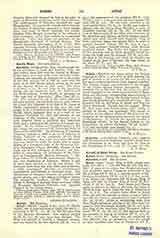

Achab (Ahabh, ‘Achaab, in Jer., xxix, 22, Ehabh, Achiab), son of Amri and King of Israel, 918-897 B.C., according to III K., xvi, 29, but 875-854 according to the Assyrian documents. The original reading of III K., xvi, 29, may have been changed. The King was married to Jezabel, a Sidonian princess, and was misled by her into idolatry (III K, xvi, 31 sqq.), the persecution of the prophets (III K, xviii, 13 sqq.), and a most grievious injustice against Naboth (III K, xxi). He was twice victorious in his wars against Syria (III K., xx, 13-28), and made an alliance with the Syrian King Benadad in spite of prophetic warning (III K, xx, 33). In the sixth year of Salmanassar II the allies were overcome by the Assyrians near Karkar, and their compact ceased. Achab now allied himself with Josaphat, King of Juda, and they began war against Syria in order to conquer Ramoth Galaad (III K, xxii, 3 sqq.). The false prophets foretold victory, while Micheas predicted defeat. The battle was begun in spite of this warning, and an arrow wounded Achab between the lungs and the stomach (III K., xxii, 34). He died in the evening, and when his chariot was washed in the pool of Samaria, the dogs licked up his blood (III K, xxii, 38).
A.J. MAAS

